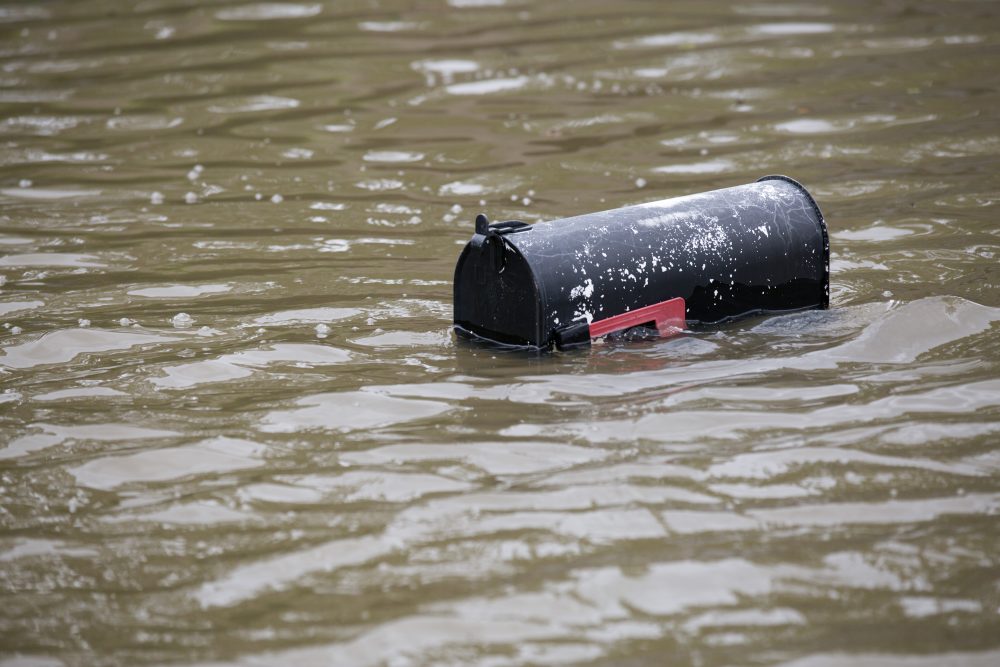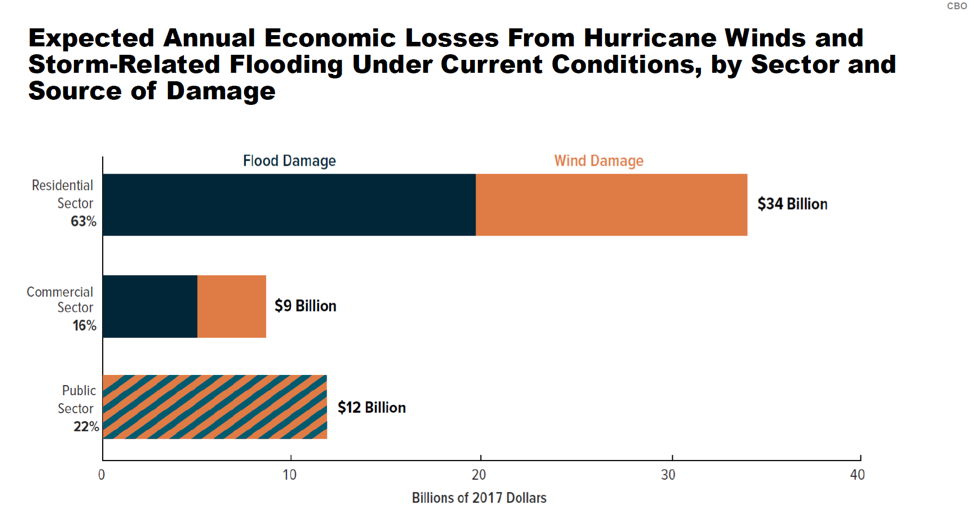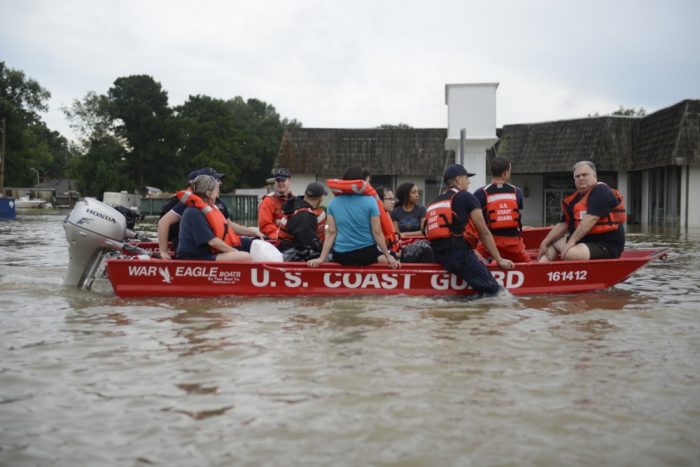Could Economic Considerations Encourage Good Disaster Policies?
It’s a sad fact that changes for the good often happen not because someone is trying to do the right thing, but solely because of economic calculations. Think about years of litigation over the effects of tobacco. Or campaigns to encourage recycling. Or the current efforts to curb the spread of opioid misuse. Though each […]

It’s a sad fact that changes for the good often happen not because someone is trying to do the right thing, but solely because of economic calculations. Think about years of litigation over the effects of tobacco. Or campaigns to encourage recycling. Or the current efforts to curb the spread of opioid misuse. Though each is fundamentally grounded in right action, the drivers for change were financial.
Could economic considerations be the motivation for changes in the federal government’s approach to natural disasters?
The Congressional Budget Office (CBO) has begun to take notice of the rising costs of disasters. And well they should. NOAA reported that in 2018 there were 14 disasters that caused over $1 billion in damage and that disasters in general cost the nation $91 billion, the fourth highest in history. The year 2017 was even more destructive – with 16 $1 billion disasters and a total of $306 billion in damage, a record for one year.
Over the course of the last few months, CBO has released three studies on expected costs of storms and their implications for the federal budget and the economy, including hurricane damage, national flood insurance, wind damage and flooding. Each study looks at the implications for the federal government, as well as residential and commercial sectors. The prognosis is troubling. CBO estimates that expected economic losses per year will total $54 billion for most types of damage caused by storm surges, hurricane winds and heavy precipitation.

It also estimates that roughly two-thirds of households’ expected losses from flooding and one-fifth of households’ expected losses from wind would be uncompensated. And here’s what is causing the most anxiety at CBO – they estimate that expected annual federal spending in response to hurricane winds and storm-related flooding will total at least $17 billion. Today much of disaster-related costs are unbudgeted and funding results from politically-charged supplementals.
CBO concludes that “without policy changes, storm-related costs are likely to rise in the future because of climate change and development in risky area.”
To their credit, CBO has some bold and politically courageous recommendations. I could personally support any one of them!
CBO recommends five approaches:
- Limit greenhouse gas emissions, which would reduce projected increases in sea levels and could lessen the severity of future storms, thus reducing the likelihood that storm damage will worsen in coming decades.
- Increase federal funding to assess flood risks, because up-to-date information about current and future risks could help people make more informed decisions about where to locate homes and businesses.
- Expand purchase requirements for flood insurance and better align premiums with risks, which would increase the number of households with flood coverage and improve the financial sustainability of the NFIP.
- Expand the federal role in risk mitigation, for example by spending more on pre-disaster activities that would reduce damage if storms occurred or by encouraging greater use of risk-reducing measures in new construction.
- Increase the share of post disaster assistance paid for by state and local governments, which would give them more incentive to discourage development in vulnerable areas, thereby lowering expected costs from future storms.
Thank you to the leaders of the Congressional Budget Office! These are excellent recommendations. Let’s hope leaders of Congress are listening.
More like this

How Black History Has Influenced Disaster Planning

